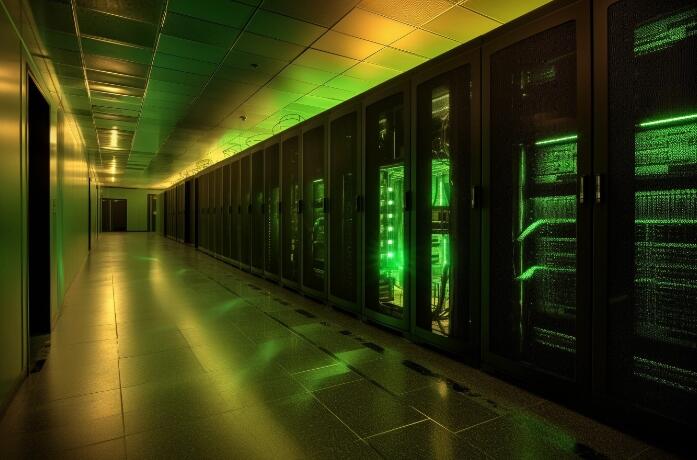The rapid development of artificial intelligence has triggered fierce competition for power resources, and Bitcoin mining has also been involved in this competition. Seemingly as a threat, the battle for power between AI data centers and Bitcoin miners may bring unexpected opportunities. This article will analyze the current competition between AI and Bitcoin mining for power resources, explore its potential impact, and how Bitcoin miners respond to the challenge.
Against the background of the rapid development of artificial intelligence, Bitcoin mining is facing an unprecedented battle for power resources. The seemingly threatening AI data center competition may actually bring unexpected "unexpected surprises" to Bitcoin miners.
Electricity resources have become a scarce commodity, and AI and Bitcoin miners are playing a game of who can "grab electricity" better. Industry experts note that this competition could create new equilibrium points for Bitcoin miners in unexpected places.

Picture source note: The picture is generated by AI, and the picture is authorized by the service provider Midjourney
Currently, the total computing power of the Bitcoin network reaches 770EH/s, and the current computing power price is US$61.12 per PH per day. This number is well below the peak in 2017, when the price of computing power exceeded $1,000.
Interestingly, industry insiders see this competition as not entirely negative. Spencer Marr, president of Sangha Renewables, said that every potential mining investment now needs to go through a key filter: whether to choose for AI or Bitcoin mining. When more and more power resources are attracted by AI, it may stabilize the price of Bitcoin's computing power.
Some experts even predict that the U.S.’s Bitcoin hashrate may drop to less than 20% by 2030, but hashrate will continue to grow globally, especially in Africa and Southeast Asia.
It is worth noting that the operation of an AI data center is more complex than a Bitcoin mining farm. They require continuous, uninterrupted operation and are more expensive to build and operate. This provides Bitcoin miners with a certain competitive advantage.
In essence, this competition reflects the scarcity of cheap power resources around the world. Whether it is AI or Bitcoin mining, the final battle will still come down to the fight for "low-cost electronics."
In this uncertain track, Bitcoin miners are using wisdom and resilience to redefine their own way of survival. Perhaps, what emerges from the crisis is new opportunities.
Ultimately, how the power competition between AI and Bitcoin mining will evolve remains to be seen. But what is certain is that this competition will reshape the global energy landscape and promote technological innovation and business model changes in related industries.